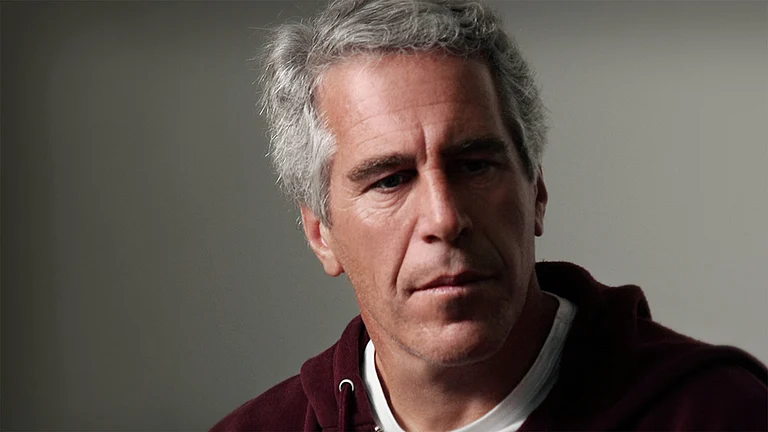Not talking to Islamabad is probably sound strategy in diplomatic terms. Diplomats have a difficult task moulding state behaviour merely by talking to governments. Often, it's not so much the wisdom of their words, but the targeted governments' obtuseness in having missed what was plainly obvious to everyone else. Diplomatic efforts then remind the blind that their course of action may lead to results different from those expected. Not talking to hostile governments could be useful, but only in the narrowest of circumstances. After all diplomats are paid to talk to people one has problems with. If no problems existed between countries, embassy-life would be a bed of roses, which it probably is, in many countries. The Indian refusal to talk to Islamabad is based on distrust engendered in the process of dealing with a dictator who deceitfully planned Kargil during the Lahore talks. Musharraf is, therefore, seen as untrustworthy and anti-Indian. Many of these descriptions could possibly fit the heads of states of a number of other countries. So, what is the advantage in paralysing an entire ministry, when it comes to dealing with Pakistan? The answer is twofold: one is to indicate that the boundaries of acceptable international behaviour have been transgressed by the Pakistan army's crossing of the LoC in Kargil; and the other is to gain a bargaining advantage by ridiculing the worthlessness of anything Islamabad might bring to the table.
International agreements are sealed when both parties stand to gain from them. Lahore was one such agreement; the nuclear cbms agreed to in Lahore were years ahead of their time in terms of the relative development of nuclear theology in India and Pakistan. (They included consultations on nuclear doctrines, intimation of ballistic missile tests, tightening control of nuclear arsenals, intimation of nuclear accidents, high-level hotlines, moratorium on tests, consultative mechanism on cbms and bilateral consultations on international nuclear regimes.) Nevertheless, the die is cast and a political, diplomatic, economic and security dialogue with Pakistan is now not possible. At a stretch, this may even be to the advantage of both countries, and give to future negotiations the required seriousness of intent that Pakistan allegedly lacks.
However, there is one issue that transcends the political, economic, diplomatic and security dialogues that have now been suspended - and that is the nuclear dialogue. A subject on which India and Pakistan can't, now or in the future, ever terminate a dialogue without giving rise to a mass of misperceptions. Many had commented at the time of the subcontinental nuclear tests in May 1998 that India and Pakistan were now locked together in an overwhelming need to assuage each other's nuclear insecurities in a continuing dialogue. An unflattering analogy could be to compare them to a thriller movie where two hostile prisoners handcuffed together, escape together and are forced to accommodate each other for mutual survival.
During the years of indecision, those who advocated India going nuclear had refuted the idea of a subcontinental nuclear arms race similar to that of the superpowers, owing to the tempering influence of Asian wisdom. Strategists, like this author, had warned that the dynamics of a technology trajectory were too strong to be controlled by societal forces and particularly by weak Asian governments, and by politicians from rural non-technical backgrounds. These societal leaders are unpleasantly surprised when asked to make an estimate of how many bombs the Pakistan Atomic Energy Establishment and Pakistan Institute of Nuclear Science and Technology have fabricated since May 1998, if the number of employees on their payroll is about 7,000. Even more frightening is the estimate of what India may have produced in two years with approximately 30,000 employees on the payrolls of all the establishments involved in atomic energy.
But much more disturbing is that two years after Pokhran and Chagai, the Indian command and control organisation is yet to be put in place. The national command authority has neither been identified, nor is the national command post set up. The result is that deterrence signalling, which lies at the heart of nuclear stability, is still a distant dream. Under these conditions of clandestine nuclear arming, wild guesses are being made by each side about the intention and capabilities of the other. Deterrence is only achieved through transparency and transparency can't be established where there is no dialogue.
This is a nuts-and-bolts issue, not diplomatic. When one looks at the political situation arising out of the Cold War, one can't bracket a worse period in world history. The US was being progressively cornered in Vietnam; there was intense Cold War rivalry in the Horn of Africa; the Soviet navy was flexing its muscles in the Atlantic; Cuban troops were fighting in Angola. Certainly, the diplomatic temperature was down to freezing point. Yet behind all the disappointment, the professional arms-control negotiators went about the nuts and bolts of the serious issues. Their continuing dialogue established the ambience under which were signed the only worthwhile nuclear arms limitation agreement the world has seen. India and Pakistan have much to learn from this experience. Indian specialists need to get into a dialogue with their Pakistani counterparts because both countries stand to benefit from stabilising their nuclear arsenals. This dialogue can't be subject to the prevailing political temperatures. Rather, their continuity becomes more important as the temperatures fall. The importance of the nuclear issue transcends the importance of the political, diplomatic and economic disputes and New Delhi needs to indicate its maturity by acknowledging this fact and taking Islamabad along with it.
(Raja Menon, a former naval officer, writes on strategic affairs.)






















